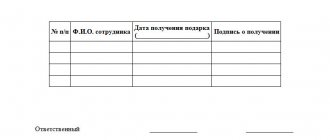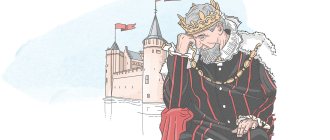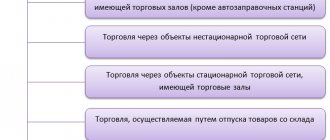Since July 1, 2016, issues of regulation of professional standards are regulated by the provisions of Article 195.3 of the Labor Code of the Russian Federation. Until now, many organizations and individual entrepreneurs do not know how to work with them. When do they make it necessary to rewrite internal personnel documentation? Do staffing schedules and job descriptions need to be adjusted? What to do if it turns out that the education of employees does not meet accepted standards? Is it necessary to retrain employees and send them to advanced training courses? And, most importantly, who controls all this? Unions? Labor inspectorates? Let's figure it out.
Why are professional standards needed?
A professional standard is the name of an important fundamental document that contains a description of the following standards:
- Labor functions of the employee in accordance with his qualifications and position.
- Requirements for his experience and knowledge.
Thus, we can say that professional standards include a description of the qualitative level of qualifications of an employee, which he must meet in order to rightfully take his place on the staff of any company, regardless of the type of its activity (Article 195.1 of the Labor Code of the Russian Federation).
Download “Professional Accountant Standard”.
All professional standards are approximately the same and have a single structure (according to the order of the Ministry of Labor of Russia dated April 12, 2013 No. 147n “On approval of the Layout of the Professional Standard”).
Unlike specialized reference books on qualifications, professional standards give a clearer idea of the work functions of workers, which have absolutely accurate and detailed descriptions. Perhaps, over time, professional standards will completely replace qualification reference books as documentation that is more in line with the requirements of the current time.
Also see “Independent assessment of employee qualifications: what you need to know.”
https://youtu.be/3IxL7Ymd90E
Check whether employees meet the requirements of the professional standard
The professional standard is a detailed list of requirements for education, work experience, knowledge and skills for different skill levels of a specialist. For example, it is enough for a HR director to have a higher economic education, at least one advanced training certificate and at least five years of practical experience in the field of personnel management in managerial positions. Such requirements are established according to the generalized labor function 3.8, which is included in the professional standard “Human Resources Management Specialist”, approved by Order of the Ministry of Labor of Russia dated October 6, 2015 No. 691n.
Check whether the working employees meet the basic requirements of the adopted standard, whether they have enough experience and education (if such requirements are in the standard itself). If an employee’s qualifications do not meet the criteria specified in the standard, he can be offered a transfer to another suitable job or sent for training. But there are no grounds for terminating an employment contract at the initiative of the employer (Article 81 of the Labor Code of the Russian Federation).
Training can be paid for by the employer or employee. The organization itself determines whether it needs to train an employee at its own expense (part one of Article 196 of the Labor Code of the Russian Federation). The training procedure can be fixed in a collective agreement, an employment contract or an additional agreement to it, in a student agreement (part two of Article 196, 199 of the Labor Code of the Russian Federation). Depending on the type of training, the organization is obliged to provide the employee with certain guarantees and compensation (Article 196 of the Labor Code of the Russian Federation). For example, when an employee is sent to advanced training courses outside of work, he retains his main place of work and average earnings (Article 187 of the Labor Code of the Russian Federation).
The law allows you to include a clause on compulsory service in employment and student contracts (part four of Article 57, Article 199 of the Labor Code of the Russian Federation). This condition, to a certain extent, guarantees that an employee who has improved his qualifications at the expense of the employer will not immediately resign. If this happens, the organization will be able to compensate for the costs incurred, calculated in proportion to the time actually not worked after completion of training (Article 249 of the Labor Code of the Russian Federation). The working period must be reasonable.
In some cases, organizations are required to provide vocational training or additional vocational education for employees (part four of Article 196 of the Labor Code of the Russian Federation). For example, the employer provides professional training, retraining and advanced training for medical and pharmaceutical workers (clause 2, part 1, article 72 of the Federal Law of November 21, 2011 No. 323-FZ). Advanced training of physicians every five years is one of the licensing requirements for an employer who conducts medical activities (subparagraph “d”, paragraph 5 of the Regulations approved by Decree of the Government of the Russian Federation of April 16, 2012 No. 291). Additional vocational education for civil servants, etc. is also mandatory (clause 6, part 1, article 15 of the Federal Law of July 27, 2004 No. 79-FZ).
As soon as you find out the training and professional development needs of employees, draw up a draft staff training plan for the current year and have it approved by the head of the organization. Please indicate in the plan: Full name. and positions of employees, what training (retraining) they need and why, duration, dates and format of educational events, criteria for choosing a provider. The presence of such a document will be useful during verification. It confirms that the employer is committed to complying with the law.
Professional standards and their scope of use
These standards may be applied and taken into account for the following purposes:
- to organize training and certification of employees;
- policy formation when staffing an enterprise with highly qualified personnel;
- organization of management processes;
- establishing internal tariffs for work performed;
- facilitating the classification of tariff categories;
- developing your own systems for paying working hours, taking into account the specifics of work at a particular enterprise.
Are professional standards mandatory for implementation or are they only intended to facilitate the organization of an enterprise and production? Should the employer (company owner) follow them unquestioningly, taking them as step-by-step instructions? Or does he have the right to choose the area and order of their application? Let's try to figure out these questions.
Is the professional standard for a teacher universal for all educators?
No, this professional standard applies only to teachers (teaching activities in the field of primary, basic, secondary general education) and educators (preschool education).
For education workers performing other labor functions, there are their own professional standards, including:
- educational psychologist (educational psychologist);
- teacher of additional education for children and adults;
- teacher of vocational training, vocational education and additional vocational education;
- specialist in the field of education;
- master of industrial training in driving vehicles of relevant categories and subcategories;
- a specialist involved in organizing the activities of a children's group (counselor), etc.
Mandatory application of standards
Paragraph three of part 2 of Article 57 of the Labor Code of the Russian Federation talks about the mandatory nature of professional standards. In particular, this provision mentions such an important document as an employment contract. Thus, if the receipt by an employee of an enterprise of special benefits, compensation or restrictions is directly related to the performance of duties inherent in a particular position, then the employer is obliged to be guided by reference books on qualifications or state professional standards.
EXAMPLE
Citizen "P" by nature of service is involved in particularly harmful and difficult work. A benefit and compensation for citizens engaged in such activities is early retirement. This means that after leaving for a well-deserved rest, an employee can count on receiving the benefits due to him, his position must be spelled out in the employment contract exactly as it is listed in the directory or professional standard. At the slightest discrepancy, the employee risks losing his legal privileges.
Therefore, it is very important to take such nuances into account and correctly draw up and fill out all the necessary documentation. If a mistake is made and this comes to light (for example, at the request of the employee himself or as a result of an ongoing audit of the enterprise), then the company’s management may be held accountable.
What to use: professional standard or ETKS?
In the future, it is planned to replace the ETKS and EKS with professional standards, as well as individual industry requirements for the qualifications of workers, approved by legislative and other regulatory legal acts that already exist (for example, in the field of transport, etc.). But such a replacement, according to the Russian Ministry of Labor, will take place over a fairly long period. In the process of implementing professional standards, a large number of questions arise. One of the most pressing: what to do if an employee has the right to early retirement, but when the professional standard is released, his position (profession) is called differently in the standard?
Why do you need to focus on the professional standard?
At the moment, when developing new job descriptions and revising old ones, as well as when introducing new positions, one should focus on the newly adopted professional standards, and not on the old ETKS and EKS. Article 57 of the Labor Code of the Russian Federation states that the employment contract specifies “Labor function (work according to the position in accordance with the staffing table, profession, specialty indicating qualifications; specific type of work assigned to the employee). If, in accordance with this Code and other federal laws, the performance of work in certain positions, professions, specialties is associated with the provision of compensation and benefits or the presence of restrictions, then the names of these positions, professions or specialties and the qualification requirements for them must correspond to the names and requirements specified in qualification reference books approved in the manner established by the Government of the Russian Federation, or corresponding to the provisions of professional standards” (quote from Article 57 of the Labor Code of the Russian Federation, part 2). In the current version of Art. 57 of the Labor Code the union “or” is used, that is, they must correspond to the names specified in classification directories or professional standards. So what does this mean? What choice does the employer have? In fact, the employer has no such choice! Professional standards indicate possible names of professions and positions, which in certain cases the employer is obliged to use, and in certain cases not.
A clear example of using a professional standard
Let's consider a situation when an employer is obliged to take the name of a position (profession) from the standard or the EKS, that is, when there are some compensations and benefits or restrictions for a certain position or profession. For example, let’s take a category for which there are compensations and benefits - electric and gas welder. This is a profession that gives the right to preferential pension provision in accordance with Resolution of the USSR Cabinet of Ministers of January 26, 1991 No. 10 “On approval of Lists of production, work, professions, positions and indicators giving the right to preferential pension provision.” The mandatory use of these lists is established by Art. 27 of the Federal Law of December 17, 2001 No. 173-FZ “On Labor Pensions in the Russian Federation”. According to Art. 57 of the Labor Code of the Russian Federation, this profession must be named in accordance with classification reference books. Thus, on the basis of the “Unified Tariff and Qualification Directory of Work and Professions of Workers. Issue 2. Part 1. Sections: “Foundry work”, “Welding work”, “Boiler rooms, cold forming, drawing and pressing work”, “Forging and thermal work”, which was approved by Decree of the Ministry of Labor of the Russian Federation of November 15, 1999 No. 45 , the profession is called “electric and gas welder”. At the same time, in the professional standard approved by Order of the Ministry of Labor of Russia dated November 28, 2013 No. 701n “On approval of the professional standard “Welder””, possible job titles are indicated as “welder” and “gas welder”.
Which document should you use in your work?
There are legal norms that instruct us that in case of contradiction, the normative act whose status is higher is applied! This principle is described in Art. 5 of the Labor Code of the Russian Federation: “Regulatory legal acts of federal executive authorities containing labor law norms must not contradict this Code, other federal laws, decrees of the President of the Russian Federation and decrees of the Government of the Russian Federation.” Having studied the two documents, we see that the ETKS was approved by Decree of the Ministry of Labor of the Russian Federation of November 15, 1999 No. 45 (as amended on November 13, 2008), the professional standard “Welder” was approved by Order of the Ministry of Labor and Social Protection of the Russian Federation of November 28, 2013 No. 701n. Thus, the status of the document is the same. Both documents are approved by the Order of the Ministry of Labor. But if the ETKS was approved, say, by a Decree of the Government of the Russian Federation, and the “professional standard” was approved by the Ministry of Labor and Social Protection, then we would apply the ETKS, since the status of the Government of the Russian Federation is higher than the status of the Ministry.
What to do if the professional standard and ECTS have the same legal force?
If two acts have the same legal force, then the later one is applied. This is confirmed by the position of the Constitutional Court of the Russian Federation: the number of legislative acts that have lost force should include acts not only formally repealed, but also actually not in force due to the publication of later acts, which they contradict. Let's draw conclusions based on our example: 1. ETKS was approved by Resolution of the Ministry of Labor of the Russian Federation of November 15, 1999 No. 45 (as amended on November 13, 2008). 2. The professional standard “Welder” was approved by Order of the Ministry of Labor and Social Protection of the Russian Federation dated November 28, 2013 No. 701n. Through a simple analysis, we conclude that it is necessary to apply the professional standard, despite the fact that the ETKS in the specified norm continues to be in force and has not been cancelled.
Requirements for employees to comply with professional standards
Article 195.3 of the Labor Code of the Russian Federation regulates the use of professional standards by employers. It provides a brief but succinct definition of an employee’s qualifications. And it is explained that if the requirements for the qualifications of a worker are legally defined, then the application of the standards becomes the indisputable responsibility of the employer, and not his right.
To make it clearer, let’s look at this point using the example of the professional standard for accountants in 2020. So, in accordance with Part 4 of Article 7 of the Federal Law of December 6, 2011 No. 402-FZ “On Accounting,” the chief accountant who came to get a job (for example, in an OJSC or an insurance organization) must meet the following requirements:
- Higher education.
- Work experience in the specialty "Accounting" or "Audit" - at least 3 years out of the last five.
But is it necessary to present these requirements if an accountant gets a job in a regular LLC? What if the potential chief accountant does not have a higher education, but has valuable experience and a good track record? Let's look at the professional standard "Accountant". It follows from this that a person can be hired as an accountant with both higher and secondary education.
Therefore, we believe that higher education is mandatory for an accountant only if he plans to work in organizations included in the list given in Part 4 of Article 7 of Law No. 402-FZ (for example, in an OJSC). If not, then it will be enough to have secondary education and work experience, which are prescribed in the professional standard.
Step-by-step instructions for the transition to professional standards and sample documents
Every Russian employer should know how to make the correct transition to professional standards in 2020. And the easiest way is to familiarize yourself with the procedure for switching to professional standards using simple and understandable step-by-step instructions, which will not allow you to make any mistakes and will give you the opportunity to timely fulfill all the requirements of the current legislation. So, this instruction looks like this:
Formation of a working group.
One employee can ensure a full transition to the use of professional standards only within a small enterprise. At the same time, the transition to professional standards affects many different aspects of the activities of a business entity, so it is advisable to involve various specialists in the working group - lawyers, personnel officers, accountants, heads of departments. At the same time, the creation of a working group must be accompanied by a corresponding order, which will also determine the timing of work in this direction.- Creating a plan for the transition to professional standards. To ensure the effective implementation of professional standards, it is necessary to first create a work plan for all activities carried out as part of this transition. This involves identifying individual tasks and distributing them among the members of the working group.
- Comparison of available positions with existing professional standards. One of the main tasks of the working group is to reconcile the staffing table and search for appropriate professional standards for employees. At the same time, for some positions there may be no professional standards, while for others several professional standards may be suitable at the same time. Therefore, it is necessary to determine the most relevant professional standards and positions that most fully correspond to them.
- Renaming positions . All positions that comply with professional standards must be renamed to the name specified in the professional standard. In this case, the renaming procedure should concern all documents related to specific positions - the staffing table, as well as the employment contract with the employee and his work record book.
- Checking the qualifications of workers. The tasks of the working group should also include assessing the qualifications of workers for compliance with the implemented professional standards. In this case, it is necessary to conduct a full certification - both on the employer’s premises and in independent assessment centers, at the request of the employer or employee.
- Correction of job descriptions . All employees to whom professional standards are applied must have job descriptions that comply with such standards, which will also require making certain changes to the local regulations in force at the enterprise.
To switch to professional standards, the following sample documents may be required:
- Order on the formation of a working group on the implementation of professional standards.
- Plan for transition to professional standards.
- Order on renaming positions and making changes to the staffing table.
- Order on certification of workers.
- Order to make corrections to job descriptions.
Improvement of employee qualifications
The employer has the right to send employees of his enterprise to retraining and advanced training courses. In accordance with Article 196 of the Labor Code, this is his right, but not his obligation. That is, he can make this decision at his own discretion, based on considerations of the feasibility of such training. Most often - to raise the company’s status in the market, its prestige and the qualifications of workers involved in work processes.
In serious and large companies, the employer and owner of the company are interested in a high level of training of employees. To verify and confirm it, international professional standards of internal auditing can be used.
What general requirements for teachers does the professional standard establish in 2020?
First of all, the professional standard of a teacher establishes the educational requirements for a teacher or a person who wants to work as a teacher or educator. So, a teacher, for example, must have a higher or secondary vocational education:
- in the field of pedagogy or in the direction of the subject that the teacher teaches;
- other higher or secondary vocational education and additional education in the area of activity at school.
Note! Obtaining additional vocational education in the field of activity in an educational organization is necessary only for those persons who wish to work as teachers, but do not have higher or secondary vocational education - pedagogical or in the field of the subject that such persons intend to teach. If you have an appropriate higher or secondary education (i.e. pedagogical and/or in the profile of the subject being taught), the requirement of the professional standard for additional education is redundant (see letter of the Ministry of Education of Russia dated March 28, 2019 No. TS-817/08).
In this case, a teacher who does not have practical experience in his specialty may be hired.
The following persons cannot work as teachers:
- deprived of the right to engage in such activities by court decision;
- having a criminal record (including expunged);
- declared incompetent;
- having certain diseases.
An example of using professional standards for advisory purposes
Let us assume that the current legislation does not impose strict requirements for the qualifications of specialists in certain professions. Let, in our case, for clarity, it be “HR Specialist”. Therefore, the professional standards for personnel officers approved for 2020 can be applied to this position. But use them only by taking them as a basis to facilitate the preparation of documentation.
For example, taking the professional standard as a certain template, you can:
- correctly identify job titles;
- functions related to the execution of the workflow;
- set reasonable requirements for their qualifications, experience, and education.
That is, this document, in fact, acts as a foundation that allows the employer to find support points when building natural work processes in a team.
What professional standards should you apply at your school?
Among the professional standards there are those that must be introduced before January 1, 2020. They regulate the requirements for teaching staff. But one of them – the professional standard “Teacher” – may change.
It is not necessary to introduce professional standards for non-teaching workers. If you do accept them, you can set requirements for candidates and develop job descriptions. To decide which professional standards for which positions you will introduce at school, use the table “ What professional standards to introduce at school ”
Question. Should the professional standard “Teacher” be introduced if they want to change it?
You can postpone the application of the professional standard, but then you risk not having time to introduce it before January 1, 2020. But the government resolution obliging you to do this has not yet been canceled.
The Ministry of Education will divide the professional standard of a teacher into two - “Teacher” and “Preschool teacher (educator).” Drafts of new professional standards have already been developed. The standard for teachers will be expanded to be used in a unified teacher certification model. Also, with its help, new teaching positions will be introduced, which will differ in the degree of responsibility and complexity of work.
It is not clear when the professional standard will be changed and whether it will be done before 2020. Therefore, you can start working on its introduction in order to comply with the Government's instructions on time.
Questions of application of Art. 195.3 Labor Code of the Russian Federation
All discrepancies and interpretations of Article 195.3 of the Labor Code of the Russian Federation are associated with its relative novelty. A lot of questions arise regarding the scope of its application. Moreover, it is still not installed:
- a unified method for introducing professional standards into enterprises (plan, etc.);
- a measure of responsibility for the employer and employees who have been working in their companies for a long time, if the latter are not currently able to meet professional standards.
And it is not at all clear what to do with new potential employees who are just planning to come to work for the enterprise. The labor market is now crowded, but not everything is so simple. This does not mean at all that there is no shortage of valuable personnel. It is not always the case that a new employee with a higher education is able to replace an old one who has only a secondary vocational education behind him, but has enormous experience.
Officials of the Russian Ministry of Labor constantly receive various questions regarding the application of professional standards. Here are some questions and answers to them.
Strict adherence to professional standards
Question: Is there a need to strictly follow the requirements of approved professional standards?
Answer: Yes. The employer must keep in mind that he is obliged to strictly follow the requirements when hiring a person if we are talking about issues regulated by Articles 57 part 2 and 195.3 of the Labor Code of the Russian Federation. In other cases, all requirements are purely advisory in nature.
Mandatory professional standards in private organizations
Question: Is compliance with professional standards mandatory for private organizations? Or are they designed to streamline the work of state and municipal companies and enterprises?
What should employers do: standard action plan
When developing an action plan for the implementation of professional standards, it is necessary to take into account that sometimes conflict situations arise, including those related to dismissal. In this regard, we recommend planning all events at least a couple of months before the actual execution.
Please also note that the Methodological recommendations for the application of professional standards from the Ministry of Labor are still in the draft stage, and all responsibility for the transition procedures lies entirely with the employer. But there is Order of the Committee on Social Policy of St. Petersburg dated November 21, 2016 No. 361-r “On approval of Methodological recommendations for organizing work related to the development of plans for organizing the application of professional standards in state social protection institutions of St. Petersburg” and Decree of the Government of the Russian Federation dated 06.27.2016 No. 584 on the peculiarities of the application of professional standards in state, municipal and unitary enterprises, state corporations and companies, extra-budgetary funds. We recommend adhering to the rules and general norms described in these regulations, which are mandatory when carrying out any organizational and staffing activities.
When do off-budget funds and state-owned enterprises need to switch to professional standards?
The legislator allocates extra-budgetary funds and other organizations, the controlling stake of which is in the hands of the state, into a separate group in terms of introducing the provisions of professional standards into their activities. The authority to establish the fact that standards are mandatory for such companies has been transferred to the Government of the Russian Federation, and the opinion of the Tripartite Commission for the Regulation of Labor Relations must be taken into account.
On June 27, 2016, Resolution No. 584 of the Government of the Russian Federation was adopted, which establishes the specifics of the application of professional standards in terms of requirements mandatory for use by extra-budgetary funds and state-owned enterprises. In particular, he established a transition period until 2020, during which enterprises must implement professional standards based on a pre-approved plan.








